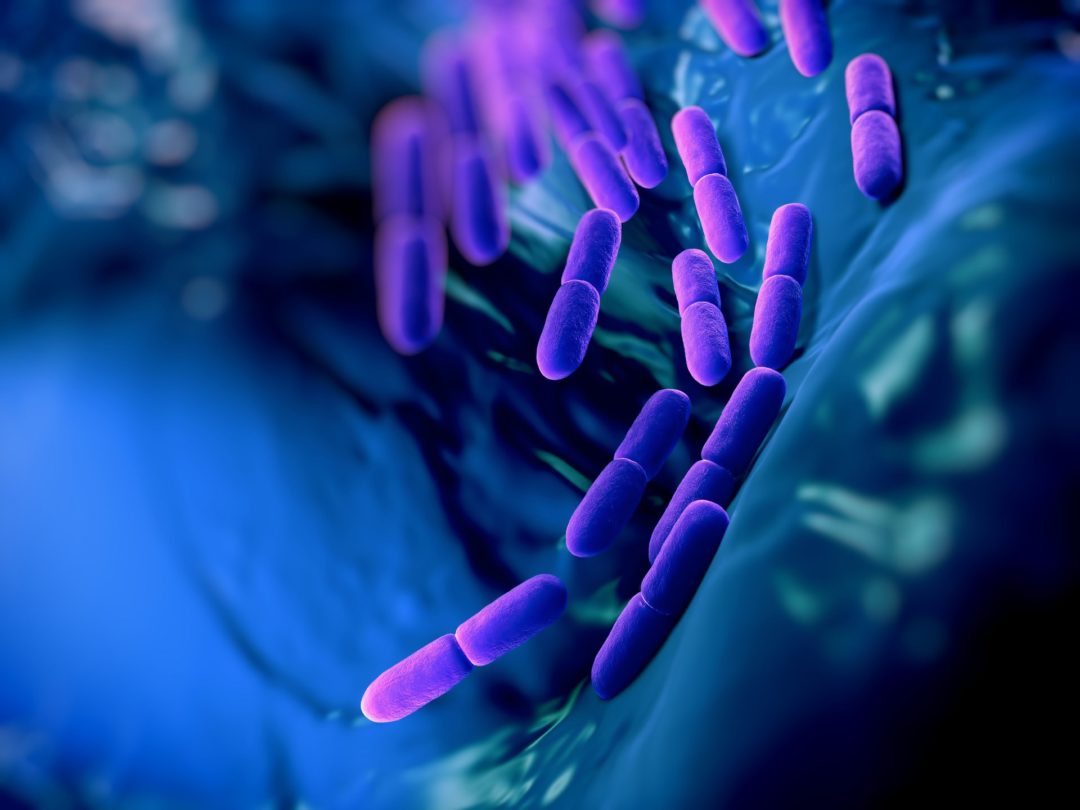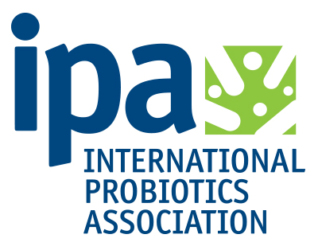
Quicklinks
WholeFoods Magazine
The Case for Probiotics in Gestational Diabetes

[vc_row][vc_column][vc_column_text]Although high blood sugar is never good, it’s especially harmful during pregnancy. When glucose intolerance appears for the first time in pregnancy, it is called gestational diabetes mellitus.
Public health officials are worried. Parallel to obesity, gestational diabetes mellitus (GDM) rates are rising across the globe, affecting as many as one-fourth of pregnant women.
GDM can lead to many adverse maternal and neonatal outcomes such as preeclampsia, cesarean delivery, fetal macrosomia, shoulder dystocia, and neonatal hypoglycemia.
That’s just the short-term.
As time passes, both mothers and offspring will be at higher risk for metabolic syndrome, type 2 diabetes, and cardiovascular disease.
Controlling blood sugars is crucial. Drugs are effective, but have side effects; exercise, weight management and diet interventions have had mixed results in part because of adherence. Alternate therapies such as microbial modulation are being explored.
Microbes and GDM
The gut microbiota presents a potential target because changes in its composition have been described in pregnancies either before the onset of GDM or after its diagnosis. During pregnancy, an imbalance in gut flora resembles metabolic dysfunction with increased inflammation and decreased insulin sensitivity.
Probiotics and GDM
A 2019 meta-analysis using 10 studies with a combined total of 1,139 participants, found that probiotics supplementation was effective: it reduced the fasting blood glucose serum insulin levels and insulin resistance. "Probiotics improve glucose and lipid metabolism in pregnant women: a meta-analysis" appeared in Annals of Translational Medicine in March of 2019. However, according to the authors, the various studies proved inconsistent most likely due to different dosages and types of probiotic bacteria used. Subgroup analysis supports this suggestion as multi-strain probiotics were more efficacious than single-strain probiotics. Similarly, higher doses (≥6x109 CFU) seemed to be more efficacious then lower doses (<6x109 CFU) and longer studies ((≥8 weeks) tended to be more successful: “The findings of the present meta-analysis suggest that the combination of probiotic species and longer duration of interventions are more effective in improving glucose metabolism.”
A second meta-analysis, which was also published in 2019 and appeared in Journal of Maternal-Fetal and Neonatal Medicine, included six studies involving 830 patients. Results showed that compared with controls, probiotic supplementation reduced insulin resistance (HOMA-IR) and fasting serum insulin, but had no substantial influence on fasting plasma glucose, gestational age and gestational weight.
In addition, a randomized, double‐blind, placebo‐controlled trial from Thailand is interesting. Fifty-seven pregnant women with diet‐controlled gestational diabetes mellitus were enrolled in the study at 24–28 weeks of gestation and randomized to receive either probiotic supplements containing Bifidobacterium and Lactobacillus or a placebo daily for four consecutive weeks; unfortunately, the strains were not specified.
These four weeks of probiotic supplements in women with diet‐controlled gestational diabetes in the late second and early third trimester lowered fasting glucose and increased insulin sensitivity. Caloric intake, dietary composition, fiber intake and weight gain were not significantly different between the placebo and probiotic groups.
"Effects of probiotic supplements on insulin resistance in gestational diabetes mellitus: A double-blind randomized controlled trial" appeared in the Journal of Diabetes Investigation in 2019.
Not all the news is promising. A randomized-controlled trial of probiotic versus placebo in 411 overweight and obese pregnant women in Australia failed to show any effect at preventing GDM by probiotics administered from the second trimester. This was despite an earlier report on the same probiotic combination reducing GDM-risk. Another trial with 149 women in Ireland failed to show any effects of the tested probiotic strain of Lactobacillus salivarius on glycemic control.
Inconsistent results are partly due to the wide range and doses of probiotics used, and differences in study set-up. Another challenge is that probiotics influence metabolism from different angles, which in turn may be impacted by individual maternal factors.
In any case, likely mechanisms of actions for probiotics in glycemic control are numerous.
Mechanisms of probiotic action in GDM
Reduction in oxidative stress and inflammation: Patients were randomly allocated to take either a probiotic capsule containing Lactobacillus acidophilus, Lactobacillus casei and Bifidobacterium bifidum (2 × 109 CFU/g each) or placebo for six weeks.
Reduced intestinal permeability: Several probiotic strains have been shown to bolster adhesion proteins within the gut epithelium and reduce intestinal permeability, leading to less systemic inflammation.
Increased secretion of incretins: Some probiotics may stimulate the production of short‐chain fatty acids leading to enhanced glucagon‐like peptide‐1 (GLP‐1) secretion. GLP‐1 is an incretin hormone that stimulates insulin secretion and delays gastric emptying, leading to improved glucose levels; GLP‐1 receptor agonists are widely used as antidiabetic medications.
And because metabolism is an intricate web of checks and balances, other mechanisms are likely implicated.
Take-away
Probiotics may be a safer alternative to drugs to prevent gestational diabetes mellitus. The details on species and strains as well as numbers are yet to be defined. In the meantime, pregnant women should eat healthfully (with ample fermented foods), exercise diligently and consider a probiotic supplement.[/vc_column_text][vc_separator][vc_column_text]Note: The views and opinions expressed here are those of the author(s) and contributor(s) and do not necessarily reflect those of the publisher and editors of WholeFoods Magazine.[/vc_column_text][/vc_column][/vc_row][vc_row][vc_column][vc_column_text]Author Clare Fleishman RDN, MS is a Registered Dietitian with the Academy of Nutrition and Dietetics and holds a master degree in nutrition science. She bridges the gap between science and health across most platforms: major newspapers, magazines, books (Globesity), workshops, social media and websites. From corporate whiteboards to refugee schools in Egypt, Fleishman agitates for personal and public change. In 2010, she launched www.ProbioticsNow.com to share the cascade of new discovery in the microbiome. Always amazed at this “forgotten organ” Fleishman also creates white papers, blogs, videos and social media for the International Probiotics Association as well as continuing education platforms.[/vc_column_text][/vc_column][/vc_row]
Public health officials are worried. Parallel to obesity, gestational diabetes mellitus (GDM) rates are rising across the globe, affecting as many as one-fourth of pregnant women.
GDM can lead to many adverse maternal and neonatal outcomes such as preeclampsia, cesarean delivery, fetal macrosomia, shoulder dystocia, and neonatal hypoglycemia.
That’s just the short-term.
As time passes, both mothers and offspring will be at higher risk for metabolic syndrome, type 2 diabetes, and cardiovascular disease.
Controlling blood sugars is crucial. Drugs are effective, but have side effects; exercise, weight management and diet interventions have had mixed results in part because of adherence. Alternate therapies such as microbial modulation are being explored.
Microbes and GDM
The gut microbiota presents a potential target because changes in its composition have been described in pregnancies either before the onset of GDM or after its diagnosis. During pregnancy, an imbalance in gut flora resembles metabolic dysfunction with increased inflammation and decreased insulin sensitivity.
Probiotics and GDM
A 2019 meta-analysis using 10 studies with a combined total of 1,139 participants, found that probiotics supplementation was effective: it reduced the fasting blood glucose serum insulin levels and insulin resistance. "Probiotics improve glucose and lipid metabolism in pregnant women: a meta-analysis" appeared in Annals of Translational Medicine in March of 2019. However, according to the authors, the various studies proved inconsistent most likely due to different dosages and types of probiotic bacteria used. Subgroup analysis supports this suggestion as multi-strain probiotics were more efficacious than single-strain probiotics. Similarly, higher doses (≥6x109 CFU) seemed to be more efficacious then lower doses (<6x109 CFU) and longer studies ((≥8 weeks) tended to be more successful: “The findings of the present meta-analysis suggest that the combination of probiotic species and longer duration of interventions are more effective in improving glucose metabolism.”
A second meta-analysis, which was also published in 2019 and appeared in Journal of Maternal-Fetal and Neonatal Medicine, included six studies involving 830 patients. Results showed that compared with controls, probiotic supplementation reduced insulin resistance (HOMA-IR) and fasting serum insulin, but had no substantial influence on fasting plasma glucose, gestational age and gestational weight.
In addition, a randomized, double‐blind, placebo‐controlled trial from Thailand is interesting. Fifty-seven pregnant women with diet‐controlled gestational diabetes mellitus were enrolled in the study at 24–28 weeks of gestation and randomized to receive either probiotic supplements containing Bifidobacterium and Lactobacillus or a placebo daily for four consecutive weeks; unfortunately, the strains were not specified.
These four weeks of probiotic supplements in women with diet‐controlled gestational diabetes in the late second and early third trimester lowered fasting glucose and increased insulin sensitivity. Caloric intake, dietary composition, fiber intake and weight gain were not significantly different between the placebo and probiotic groups.
"Effects of probiotic supplements on insulin resistance in gestational diabetes mellitus: A double-blind randomized controlled trial" appeared in the Journal of Diabetes Investigation in 2019.
Not all the news is promising. A randomized-controlled trial of probiotic versus placebo in 411 overweight and obese pregnant women in Australia failed to show any effect at preventing GDM by probiotics administered from the second trimester. This was despite an earlier report on the same probiotic combination reducing GDM-risk. Another trial with 149 women in Ireland failed to show any effects of the tested probiotic strain of Lactobacillus salivarius on glycemic control.
Inconsistent results are partly due to the wide range and doses of probiotics used, and differences in study set-up. Another challenge is that probiotics influence metabolism from different angles, which in turn may be impacted by individual maternal factors.
In any case, likely mechanisms of actions for probiotics in glycemic control are numerous.
Mechanisms of probiotic action in GDM
Reduction in oxidative stress and inflammation: Patients were randomly allocated to take either a probiotic capsule containing Lactobacillus acidophilus, Lactobacillus casei and Bifidobacterium bifidum (2 × 109 CFU/g each) or placebo for six weeks.
Reduced intestinal permeability: Several probiotic strains have been shown to bolster adhesion proteins within the gut epithelium and reduce intestinal permeability, leading to less systemic inflammation.
Increased secretion of incretins: Some probiotics may stimulate the production of short‐chain fatty acids leading to enhanced glucagon‐like peptide‐1 (GLP‐1) secretion. GLP‐1 is an incretin hormone that stimulates insulin secretion and delays gastric emptying, leading to improved glucose levels; GLP‐1 receptor agonists are widely used as antidiabetic medications.
And because metabolism is an intricate web of checks and balances, other mechanisms are likely implicated.
Take-away
Probiotics may be a safer alternative to drugs to prevent gestational diabetes mellitus. The details on species and strains as well as numbers are yet to be defined. In the meantime, pregnant women should eat healthfully (with ample fermented foods), exercise diligently and consider a probiotic supplement.[/vc_column_text][vc_separator][vc_column_text]Note: The views and opinions expressed here are those of the author(s) and contributor(s) and do not necessarily reflect those of the publisher and editors of WholeFoods Magazine.[/vc_column_text][/vc_column][/vc_row][vc_row][vc_column][vc_column_text]Author Clare Fleishman RDN, MS is a Registered Dietitian with the Academy of Nutrition and Dietetics and holds a master degree in nutrition science. She bridges the gap between science and health across most platforms: major newspapers, magazines, books (Globesity), workshops, social media and websites. From corporate whiteboards to refugee schools in Egypt, Fleishman agitates for personal and public change. In 2010, she launched www.ProbioticsNow.com to share the cascade of new discovery in the microbiome. Always amazed at this “forgotten organ” Fleishman also creates white papers, blogs, videos and social media for the International Probiotics Association as well as continuing education platforms.[/vc_column_text][/vc_column][/vc_row]








